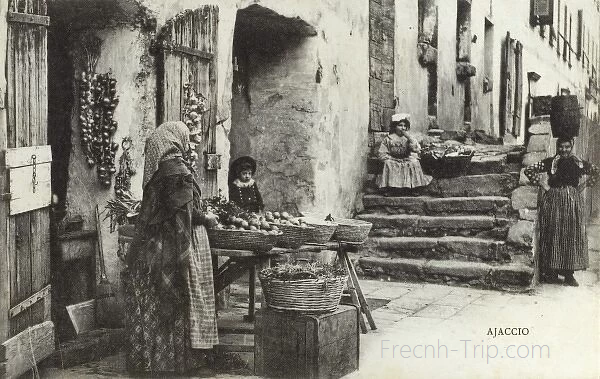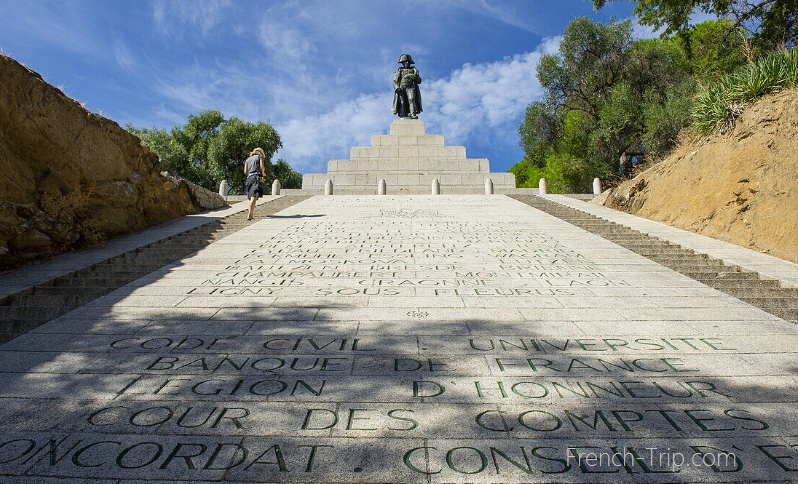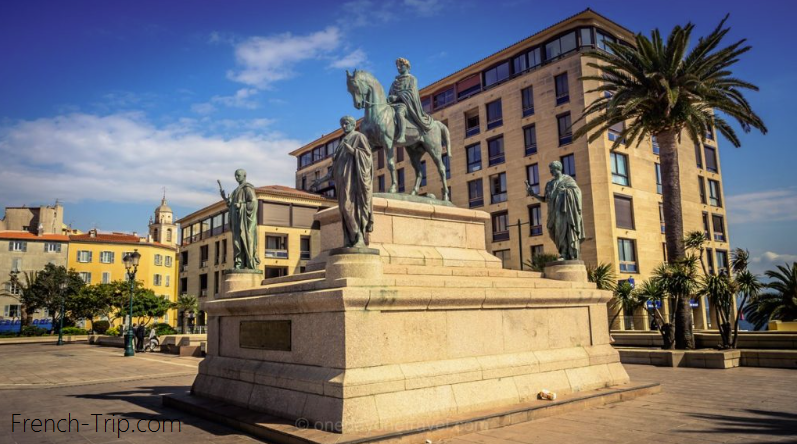History of Ajaccio

Ajaccio, the capital of Corsica, has a rich history deeply intertwined with the island’s cultural and political evolution.
History of Ajaccio
Its origins trace back to ancient times, with evidence of early settlement dating to the 2nd century BCE. However, Ajaccio’s significant growth began in the late 15th century when the Genoese built a fortified citadel to protect their interests on the island. The Genoese forbade Corsican inhabitants from settling within the fortified town, making it an exclusive Genoese colony.
Ajaccio’s prominence rose dramatically after 1769, when it became part of France, shortly after the birth of its most famous resident, Napoleon Bonaparte. His rise to power in the late 18th and early 19th centuries brought international attention to the city. The Bonaparte family home in Ajaccio remains a popular tourist attraction today.
Throughout the 19th century, Ajaccio grew into a lively port city and a favored resort for European elites. During World War II, Ajaccio became the first French city to be liberated in 1943, cementing its place in modern French history. Today, the city is known for its blend of historical significance, Mediterranean charm, and deep connection to Napoleon’s legacy.

Napoleon in Ajaccio
Napoleon Bonaparte, one of the most famous figures in European history, was born in Ajaccio on August 15, 1769, shortly after Corsica became part of France. His early years in the city shaped much of his identity, as the Bonaparte family was part of the Corsican nobility, and their home, the Maison Bonaparte, still stands today as a museum. This house, where Napoleon spent his childhood, contains personal artifacts and memorabilia that provide insight into his early life.
Ajaccio is filled with monuments and tributes to Napoleon, reflecting the city’s pride in its most famous son. Statues, such as the one in the Place Foch and the imposing equestrian statue in the Jardins de Casone, celebrate his legacy. The Fesch Museum, founded by his uncle, Cardinal Joseph Fesch, houses a renowned collection of Italian Renaissance art and is one of Ajaccio‘s cultural highlights.
Napoleon’s influence is felt throughout Ajaccio, not just in its landmarks, but also in the deep connection the city maintains with his memory. This makes the city a key destination for those interested in the life and legacy of the former emperor.
→ Back to Ajaccio travel guide
Archives
Calendar
| M | T | W | T | F | S | S |
|---|---|---|---|---|---|---|
| 1 | ||||||
| 2 | 3 | 4 | 5 | 6 | 7 | 8 |
| 9 | 10 | 11 | 12 | 13 | 14 | 15 |
| 16 | 17 | 18 | 19 | 20 | 21 | 22 |
| 23 | 24 | 25 | 26 | 27 | 28 | 29 |
| 30 | 31 | |||||
